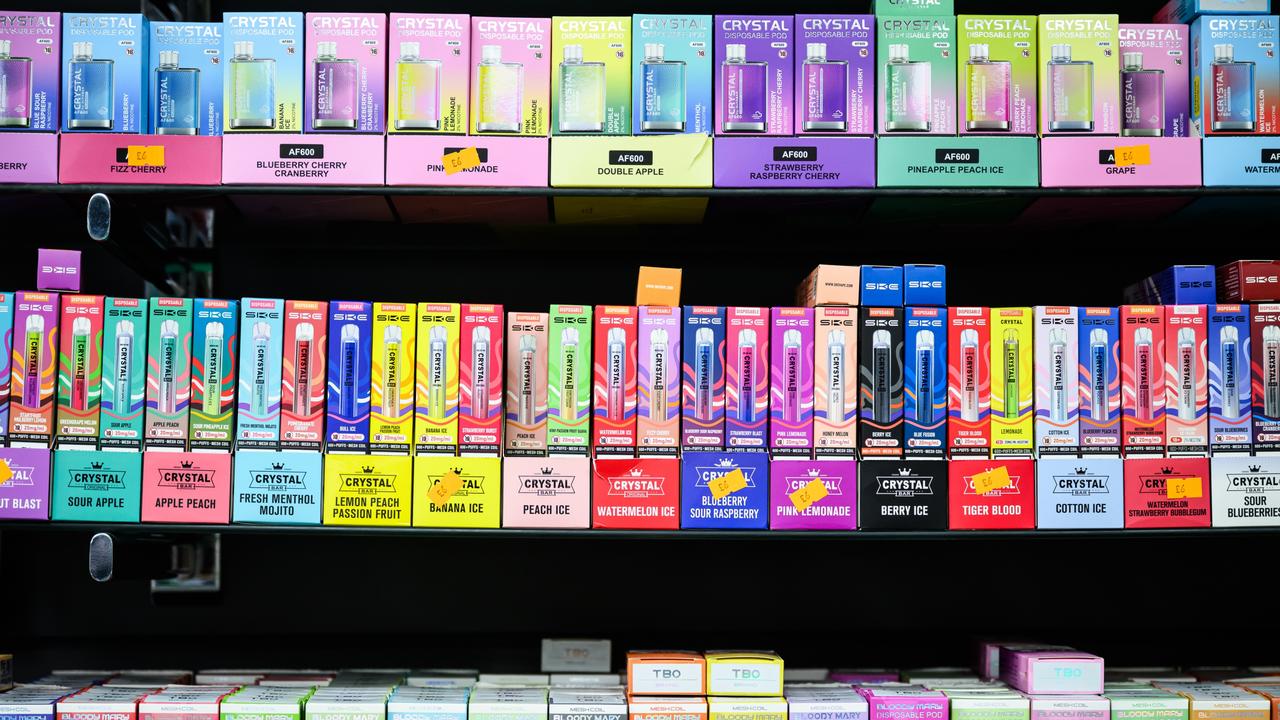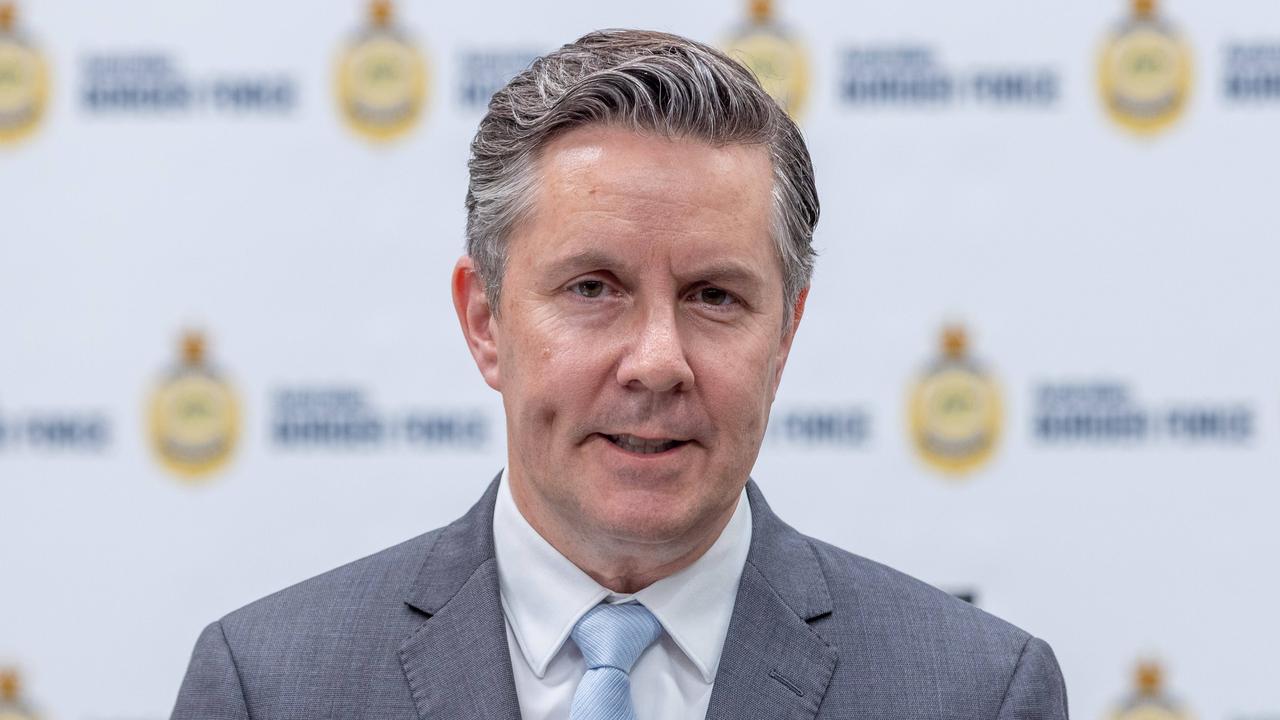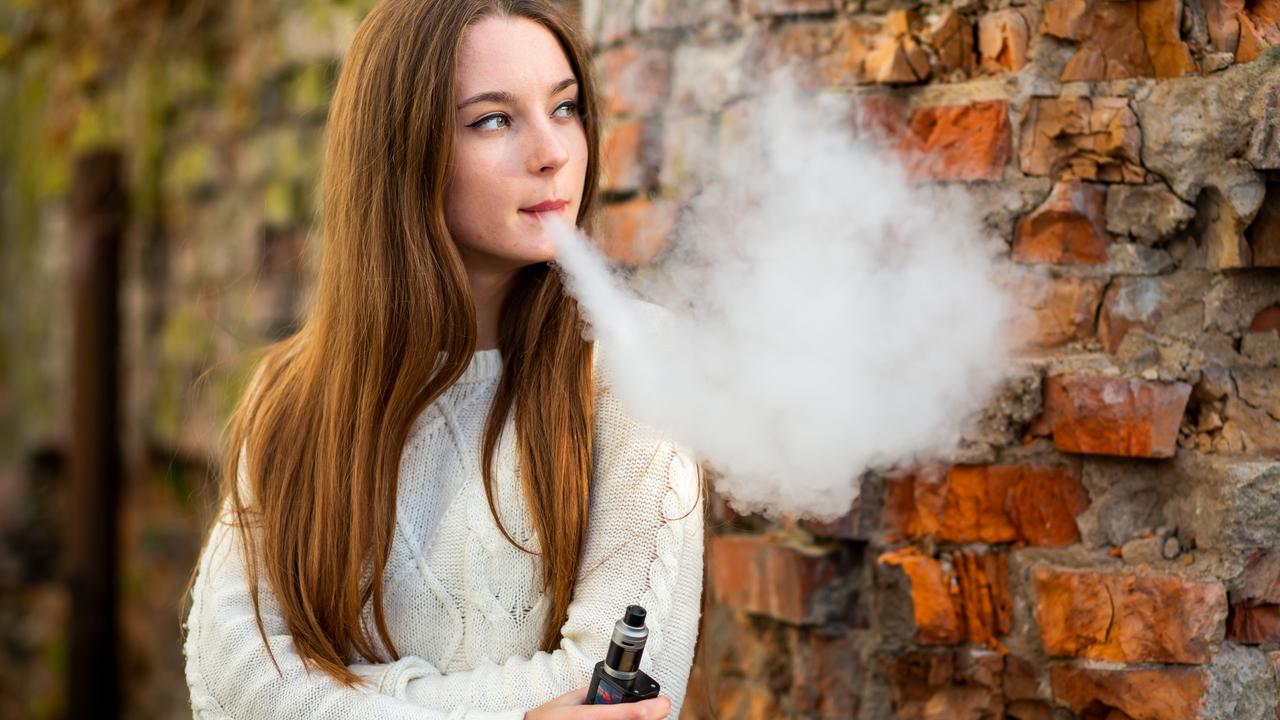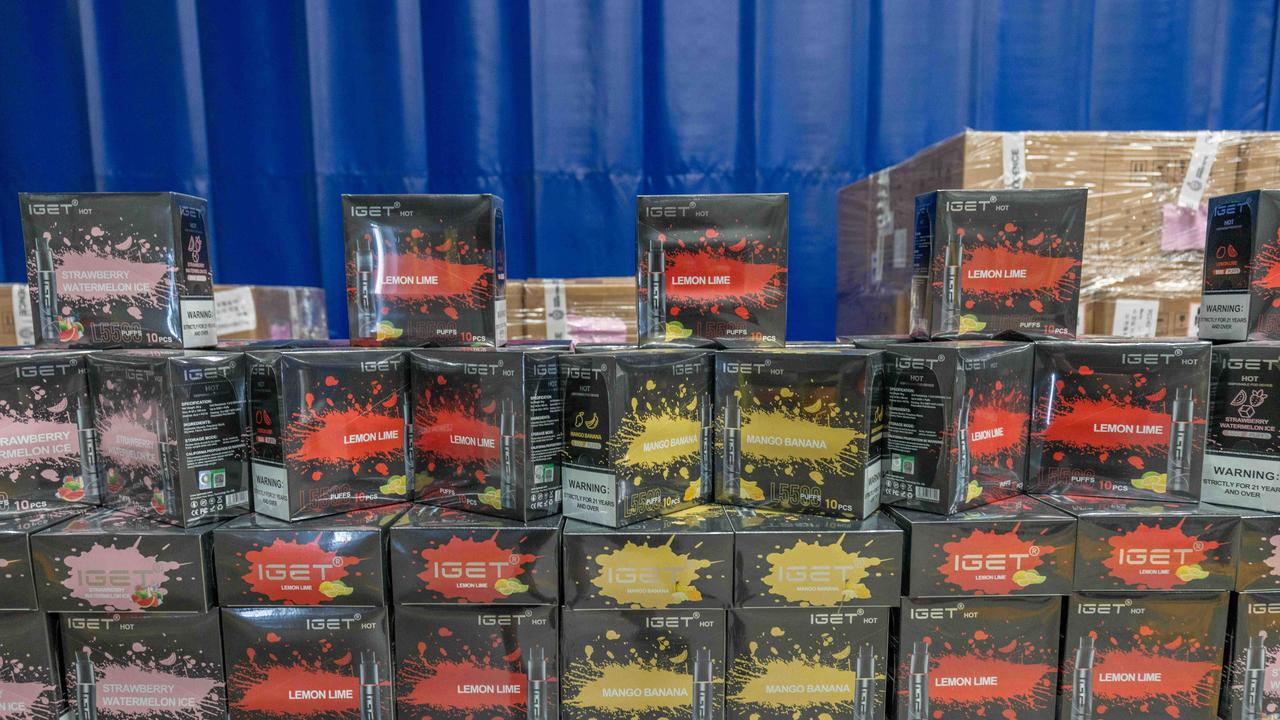Schools advised to direct vape-addicted students to Quitline and GPs for help
Schools have become a key battleground in the fight against illegal underage vaping, with principals offered resources to support addicted students.
National
Don't miss out on the headlines from National. Followed categories will be added to My News.
Every school principal in Australia will be receive anti-vaping support from federal and state governments to combat the rising epidemic among children and teens.
As millions of children go back to school this months, health and education ministers are preparing advice for teaching staff informing them about resources available to help kids quit vaping and educate students.
Principals will be warned that already one in seven 14 to 17 year olds vape regularly, which is “putting their brain development and future health at risk”.
“Vaping poses a serious threat to the health and wellbeing of our students, leading to nicotine dependence, negative academic impacts and disciplinary issues,” one example letter said.
Schools are urged to direct students seeking help to the national Quitline, and for cases of suspected nicotine dependence, to advise families to consult their GP, who can prescribe “age-appropriate cessation solutions”.

Teachers are being encouraged to use the Student Wellbeing Hub, which has resources to educate students about the dangers of vaping.
Federal Health Minister Mark Butler said parents were rightly anxious about their kids being attracted to brightly coloured vapes in flavours like bubblegum, grape or cherry.
“Tragically, vapes have morphed very quickly to become a widespread, highly addictive product and one that is being deliberately marketed at our kids,” he said.
“Vape shops are deliberately setting up down the road from schools — it’s an industry targeting their product to kids.”
Mr Butler said in addition to the health dangers, vapes had become the “number one behavioural issue” in many schools across Australia.

From March 1 restrictions on vape flavours and packaging will come into effect, which follows an import ban on disposable single-use nicotine vapes that kicked in at the start of this year.
“Stopping these vapes from coming into the country is the first step in turning the tide on vaping in Australia,” Mr Butler said.
The crackdown follows research that vape stores are densely located around schools and in disadvantaged areas, with public health experts warning the government must do more to protect children.
A study conducted in Western Australia found 88 per cent of vape stores were within one kilometre of the school, with researchers from the University of Notre Dame warning this scenario would likely be replicated across the country.

Public Health Association of Australia and adjunct professor Terry Slevin said measures to close the remaining loopholes were urgently needed to stop the epidemic of young people vaping.
“There has been a rapid explosion of vaping retailers across the country over the last few years,” he said.
“We call on all state and federal parliamentarians to side with public health professionals, schools and teachers and put the health of young people first, by supporting the full suite of proposed vaping reforms.”

NSW Secondary Principals’ Council president Craig Peterson applauded the “long overdue” move to equip school leaders withvaping resources – “as long as it’s had a bit of an education lens over it”.
“NSW Health has done a lot of good work but … the response has been a little bit ad hoc,” he said.
“Schools and parents and principals have been left to try and put things together by themselves, and it takes a long timeto do it well – there’s a lot of information and misinformation out there.”
Principals are yet to see the impact of the government’s national ban on non-prescription vapes, but Mr Peterson said the problem has been “getting worse” leading into the new school year.
“We still have lots of students vaping, and lots of principals reporting that this is the single biggest distraction in their schools at the moment,” he said.
The crackdown follows research that vape stores are densely located around schools and in disadvantaged areas.
More Coverage
Originally published as Schools advised to direct vape-addicted students to Quitline and GPs for help









